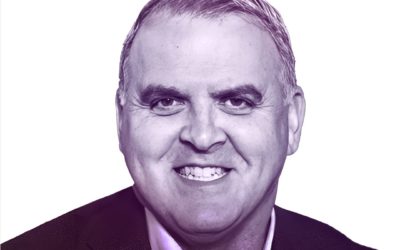“The lines of communication need to flow and be open in both directions or you’re setting yourself up for failure.”
Thomas Murdoch is the Senior Audit Manager at EisnerAmper LLP. EisnerAmper is a leading full-service accounting and advisory firm, among the largest in the United States. They provide audit, accounting, and tax services, as well as corporate finance, internal audit and risk management, litigation consulting, forensic accounting, and other professional advisory services to a broad range of clients across many industries.
What type of communication is needed in an audit?
Thomas: “It needs to be a two way-street. It’s not a one-way communication from the client to you or you to the client. The lines of communication need to flow and be open in both directions or you’re setting yourself up for failure.”
Thomas: “I recommend finding out how your client wants to be communicated with. Whether that be by phone, by email, or in person meetings. Hopefully a combination of all three. It makes them feel that you care and you want to understand how they operate best.”
Thomas: “Don’t forget to communicate with your clients how you like to be communicated with and the best way for you to be contacted. So that your client’s not reaching out to you via email, when you typically don’t check your emails. Maybe you like the phone better.”
Manage and set expectations.
Thomas: “You want to find out what that drop dead date is. When these financials and the opinion that we give them need to be due by. Once you could find that end date, typically it’s best you work backward. As you work backward, you want to set some interim deadlines where you say, okay, certain tasks need to be completed by these dates in order for us to meet the drop dead date.”
Thomas: “You start with the end and then you create some interim goals in between so you make sure you’re progressing towards that end timeline. I would say that’s probably the best way to do it. You can’t lose track of that drop that date, but you also need to do things in the interim to progress towards it.”
Keep clients accountable.
Thomas: “In talking about accountability, even though you’re providing the client service, you also don’t want to let a client off the hook and you just jump every time they call. You’re also running your business just like they are.”
Thomas: “As long as you have that understanding and they understand that, ‘hey, if you miss a certain target deadline where you give us your 930 financial statements, you missed it by two weeks.’ There are things we can do to remediate the situation and still meet our targeted deadline. But you have to know that what happens on our end, just like many service organizations, is you may lose out on staffing.”
Thomas: “You have to put them in your shoes and you have to let them know what happens if you miss those interim targets that you both agreed upon.”
Prepare for engaging in the audit process.
Thomas: “If you’re the client and you know you need an audit, but you’ve never gotten one before, do it early. Don’t wait until the end of the year to find an audit firm. Because then you may find an audit firm that just doesn’t meet your expectations, that costs too much, or you just don’t get along. So do that as early as possible.”
Thomas: “You want to meet with the client on a quarterly basis. You want to find out what happened every quarter. Were there major revenue transactions? Did the organizational structure change? Has there been an influx of investor capital or major distributions? As an auditor, if I know that information, I’m better able to plan my audit more efficiently and effectively.”


